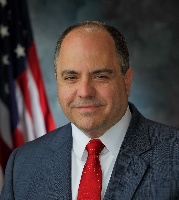Fillmore Criminal Lawyer, New York
Sponsored Law Firm
-
 x
x

Click For More Info:
-
Law Office of Mark S. Guralnick
55 Madison Avenue 4th Floor Morristown, NJ 07960» view mapCriminal Defense Law Dedicated. Fearless. Successful.
Mark S. Guralnick and his legal team have helped clients throughout the USA and across the world by applying unparalleled dedication and hard work to each case.
800-399-8371
Raymond Paul Sciarrino
✓ VERIFIEDCriminal, Real Estate, Personal Injury, Traffic, Estate
Licensed: 22 Years
Sciarrino & Sciarrino, P.C. is a criminal law firm serving Rochester and the surrounding areas of Livingston County and Wyoming County. For more than ... (more)
Bronwyn Elaine Enders
Social Security, Divorce & Family Law, Criminal
Status: In Good Standing Licensed: 17 Years
Peter J. Degnan
Motor Vehicle, Wrongful Termination, Criminal, Bankruptcy & Debt
Status: In Good Standing Licensed: 36 Years
John Albert Cappellini
White Collar Crime, Estate Planning, Bankruptcy, Contract, Natural Resources
Status: In Good Standing Licensed: 27 Years
Heather A. Tomes
Divorce & Family Law, Real Estate, Criminal, Car Accident
Status: In Good Standing Licensed: 20 Years
Raymond Louis Sciarrino
Accident & Injury, Personal Injury, Criminal, Estate, Real Estate
Status: In Good Standing
Norman Peter Effman
State & Local Agencies, Criminal, Prisoners' Rights
Status: In Good Standing Licensed: 56 Years
Vincent Orsland Ladd
Real Estate, Divorce & Family Law, Criminal, Bankruptcy & Debt
Status: Inactive Licensed: 58 Years
 Mark Guralnick Morristown, NJ
Mark Guralnick Morristown, NJ AboutLaw Office of Mark S. Guralnick
AboutLaw Office of Mark S. Guralnick Practice AreasExpertise
Practice AreasExpertise

